
Women and children are disproportionately affected by natural disaster and war - pregnant women face dangerous deliveries and, in unprotected refugee settlements, rape, trafficking and gender-based violence increase. IPPF delivers essential lifesaving services for women, men and children in times of crisis.
Articles by Emergencies

A mother in need volunteers to save others in the earthquake
“When the earthquake struck, I was on the sixth floor of my family’s house, with my son. For 15 or 20 minutes, I couldn’t do anything. I tried to open the door but I couldn’t: I was trapped.” Rita Chawal is 32 years old and married with a small son, who was four at the time of the earthquake. They lived together with 15 other members of her husband’s family in one of the tall, traditional houses that line the streets of Bhaktapur, an ancient temple city 15 kilometres from Kathmandu. The earthquake caused extensive damage to the city, bringing down old brick houses, shops and schools, and destroying some of the medieval temples in the network of squares that make up the city’s historic centre. The entire back of Rita’s house collapsed. “Eventually, we managed to come down from the sixth floor, but once we got to ground level, we saw that many houses had collapsed,” she says. “It was really terrifying seeing those scenes. Nevertheless, we managed to cross over the demolished buildings and get to the public football grounds, where we stayed together and lived in tents.” Sexual health and the menstrual needs of women and girls tend to be neglected by aid organisations in the aftermath of natural disasters. One problem is that WASH (Water, sanitation and hygiene) response tends to be coordinated and designed by men, who can more easily overlook women’s needs. This is why organisations like FPAN are so vital in frontline response after disasters. “After the earthquake, family planning services stopped for a few days,” Rita explains. “But after that there were health camps [run by FPAN] that distributed dignity kits and family planning devices. I received dignity kits [sanitary pads etc] from them.” Rita was so moved by the suffering around her and so inspired by the work of FPAN and other NGOs, that, after attending to her own and her family’s needs, she began working as a volunteer distributing dignity kits to women and girls living in tents. FPAN services are vital, both during emergency response and in normal life. Rita says the fact that FPAN community mobilisers and volunteers can mediate well between local people and the health services, and articulate their needs, makes them unique in Nepal. “The activities that FPAN are doing are really good,” she says. “I and the women in this community really want FPAN to continue their services because they are the best ones we get. We are really worried they might stop.”
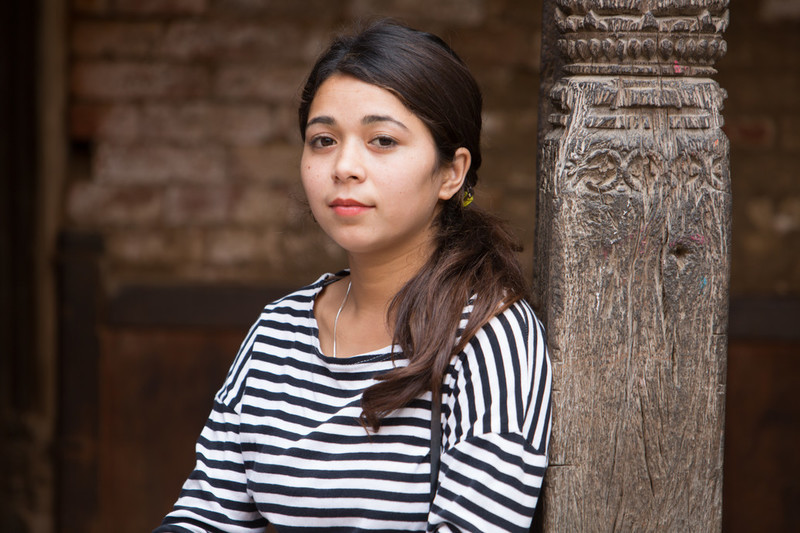
Thousands of young volunteers join us after the earthquake
The April 2015 earthquake in Nepal brought death and devastation to thousands of people – from which many are still recovering. But there was one positive outcome: after the earthquake, thousands of young people came forward to support those affected as volunteers. For Rita Tukanbanjar, a twenty-two-year-old nurse from Bhaktapur in the Kathmandu Valley, the earthquake was an eye-opening ordeal: it gave her first-hand experience of the different ways that natural disasters can affect people, particularly women and girls. “After the earthquake, FPAN was organising menstrual hygiene classes for affected people, and I took part in these,” she says. The earthquake severely affected people’s access to healthcare, but women and girls were particularly vulnerable: living in tents can make menstrual hygiene difficult, and most aid agencies tend to neglect these needs and forget to factor them into relief efforts. “After the earthquake, lots of people were living in tents, as most of the houses had collapsed,” Rita says. “During that time, the girls, especially, were facing a lot of problems maintaining their menstrual hygiene. All the shops and services for menstrual hygiene were closed.” This makes FPAN’s work even more vital. The organisation stepped into the breach and organised classes on menstrual hygiene and taught women and girls how to make sanitary pads from scratch. This was not only useful during the earthquake, but provided valuable knowledge for women and girls to use in normal life too, Rita says: “From that time on wards, women are still making their own sanitary pads.” In an impoverished country like Nepal, many women and girls can simply not afford to buy sanitary pads and tampons. Nepal is one of the poorest countries in the world with gross domestic product per capita of just $691 in 2014. In this largely patriarchal culture, the needs of women often come low down in a family’s priorities. “This is very important work and very useful,” Rita says. The women and girls also learned about how to protect themselves from sexual violence, which saw a surge in the weeks after the earthquake, with men preying on people living in tents and temporary shacks. Rita and her family lived in a tent for 20 days. “There was always the fear of getting abused,” she says. Eventually they managed to return home to live in the ruins of their house: “one part was undamaged so we covered it with a tent and managed to sleep there, on the ground floor.” Seeing the suffering the earthquake had caused, and the work FPAN and other organisations were doing to alleviate it, cemented Rita’s decision to begin volunteering. “After the earthquake, when things got back to normal, I joined FPAN.” She also completed her nursing degree, which had been interrupted by the disaster. “Since joining FPAN, I have been very busy creating awareness about sexual rights and all kinds of things, and running Friday sexual education classes in schools,” Rita says. “And since I have a nursing background, people often come to me with problems, and I give them suggestions and share my knowledge with them.” She also hopes to become a staff nurse for FPAN. “If that opportunity comes my way, then I would definitely love to do it,” she says.
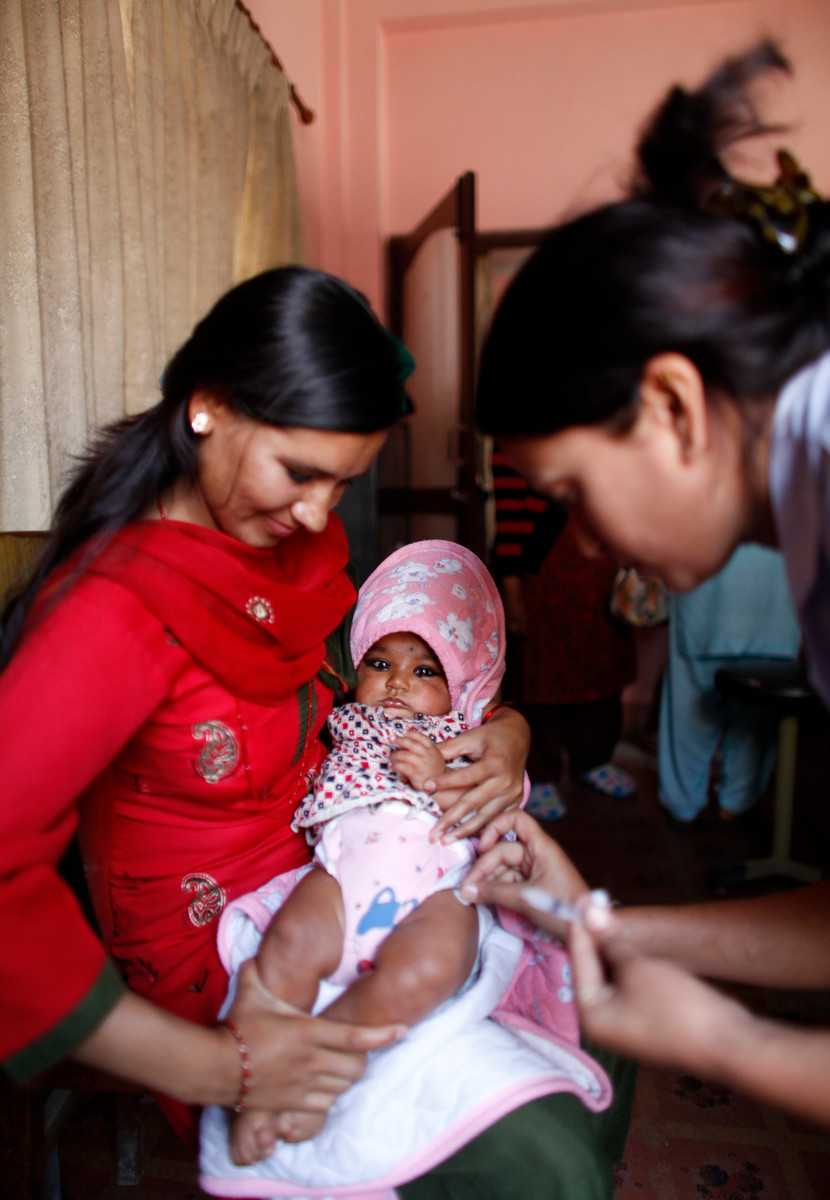
Emergency rescue in Kathmandu Valley
For Sharad Kumar Argal, the weeks after April 25 are a time he will never forget. Sharad has been working for FPAN for twenty years, currently as Kathmandu Valley branch manager. When the earthquake struck, the Kathmandu Valley was among the worst affected area in the country. Thousands of people were killed, injured and displaced, and many of the valley’s houses, schools, buildings and historic temples were destroyed or damaged beyond repair. The 2015 earthquake has been a major test for the country, with bureaucracy and alleged abuse hampering reconstruction. But for FPAN, in the days after the quake struck, there was no time to waste. “The first thing we did was to identify the needs of the people,” Sharad says. “We realised people were being deprived of services,” with many clinics and hospitals damaged, closed or overwhelmed by patients. By the second day after the earthquake, we were conducting health camps. All the volunteers and staff came together and made a plan: we identified the most affected areas and went there with mobile services.” The teams divided their work into two categories: first and second level. During the first phase, they offered check ups for those injured and distributed essential items like oral rehydration, medicines, food and water. During the second phase, a few days later, they gave more comprehensive services: the team set up mobile labs to carry out blood tests, provided contraception and dignity kits [sanitary pads etc], and gave antenatal checks and psycho-social counselling. They also set up women- and child-friendly spaces, in partnership with the UN Population Fund and other NGOs. For women, safe spaces to spend time and access support were vital, particularly given how insecure and vulnerable their temporary accommodation was. “Children were very affected with trauma, as well as physically,” says Sharad. “We set up child-friendly spaces where children could come, spend time and play with toys. We even had a tutor to give them education, as well as counsellors.” Today, the work of the FPAN Valley branch office is still heavily affected by the earthquake. Their Bhaktapur clinic was completely destroyed and they now operate out of tiny room in the ancient heart of the city, surrounded by building sites and the sounds of cement mixers, while they await permission from government and community leaders to begin building a new centre. “Most of our service delivery points are still damaged,” says Sharad. “This is the main hindrance to giving services to the people: we want to provide services but due to the lack of space, we often can’t provide the services they want. This is one of the biggest impacts we are still facing.”
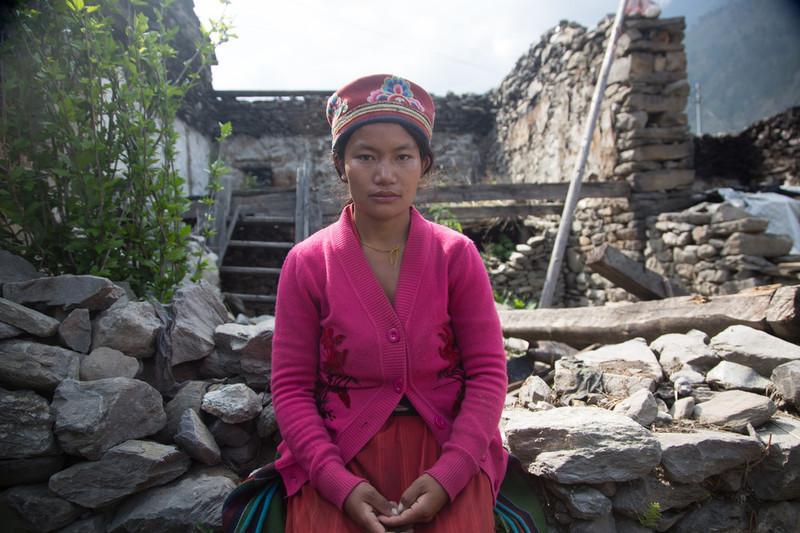
Taking health and care to rural mountain villages when disaster strikes
The earthquake that struck Nepal in April 2015 caused devastation and destruction that the country has still not recovered from. Almost 9,000 people lost their lives and over 22,000 were injured in Nepal’s worst natural disaster for 80 years. The earthquake severely disrupted access to healthcare and family planning. Thousands of people were displaced far from their usual clinics or support networks. In the days and weeks after the earthquake, the Family Planning Association of Nepal (FPAN) took action to make people’s health and family planning needs a top priority. Within 48 hours they were running emergency health camps across the country, dispensing medicines and bringing vital, changing support to thousands of survivors. Photography © IPPF/Jon Spaull

Breaking through barriers to family planning in 21st-century Nepal
The past 15 years have been turbulent for this small, landlocked country. Poverty is widespread and the earthquake of 2015 had a devastating effect. Almost 9,000 people were killed and over 22,000 injured, while the effect on houses and buildings was catastrophic: around 800,000 homes were destroyed or damaged, and 3 million people were displaced. The earthquake hit Nepal’s health sector hard. Clinics were destroyed up and down the country, and for the millions displaced from home and forced into tents, accessing health services – including family planning – became difficult, sometimes impossible. Contraception and family planning: the issues Even before the earthquake, family planning in Nepal was fraught with problems. Around 14 million Nepalis live in mountainous or hilly regions, often in small, remote villages many miles from the nearest town, where health facilities are often scarce, understaffed and poorly supplied with drugs. Where roads exist, they are often potholed, sometimes impassable, making road travel arduous. For the millions of Nepalis living beneath or near the poverty line, travelling on foot is the only option, and, even when they can afford to rent a space in a car, vehicles are scarce. “When I was about to give birth, we called for an ambulance or a vehicle to help but even after five hours of calling, no vehicle arrived,” recalls 32-year-old Muna Shrestha. “The birth was difficult. For five hours I suffered from delivery problems.” Every year, tens of thousands of Nepalis give birth without any medical help at all: just 36% of births are attended by a doctor, nurse or midwife. Maternal mortality is one of the leading causes of death among women. Myths, misconceptions and cultural resistance to contraception A lack of knowledge about family planning and contraception compounds the issue – a problem that becomes even greater among Nepal’s many rural communities and certain ethnic groups. In thousands of households, hostility towards family planning has its roots in deep-rooted customs and beliefs. In Nepal’s largely patriarchal culture, it remains the norm for couples to have four or more children: preference for sons means women are forced to go on having children until boys are born. Contraception remains an alien, uncomfortable idea for millions of Nepalis and is tightly controlled by men: women often need consent from their husbands to use contraception. Misconceptions are also rife. “I’ve heard the coil can cause cancer,” says Muna Shrestha, a farmer from Kavre district. “There are so many side effects to these devices.” In many households, contraception is deemed to fly in the face of ancient cultural traditions. “It’s thought that men who have had vasectomies won’t be able to perform the rituals after their parent’s death,” explains Binu. “Parents think that God won’t accept that, so they don’t allow men to have vasectomies.” Pasang Tamang, an FPAN volunteer in Gatlang, tells of one man who threatened to kill his wife, the doctor and any health worker who provided family planning services to his wife. Spreading knowledge to remote regions Meeting the family planning needs of Nepal’s 28 million people, particularly those living in remote mountain villages, takes careful planning, complex logistics, skilled staff and money. Since 1959, the Family Planning Association of Nepal (FPAN), has been providing better access to family planning and maternal health, ensuring its services penetrate even the most remote corners of this rugged mountain country. Reaching communities in far flung parts of this mountainous country is a logistical challenge, but one FPAN sees as crucial to its work. Teams of staff and volunteers spend days travelling by vehicle or, if necessary, on foot to make sure they reach people. “Accessibility is a big challenge, especially in rainy season when the road gets blocked and our staff have to walk carrying all the devices,” says Devendra Amgaim, FPAN’s project coordinator in Rasuwa, northern Nepal. “I go to remote places, where people and don’t know about family planning,” says Binu Koraila, an FPAN staffer in Rasuwa. Her role is spread knowledge about family planning and contraception among rural communities and to train the government workers who staff the health posts, many of which are many hours’ walk from the hamlets and villages that perch on the Langtang mountains. Cultural beliefs High up in the mountains of northern Nepal, close to the border with Tibet, lies the village of Gatlang. This cluster of timber-framed houses and Buddhist stupas is home to some of Nepal’s 1.5 million Tamang people, an ethnic group with cultural traditions stretching back centuries. Life here is strictly patriarchal. Marriage often takes place young – from around 14 years old – and girls are given little choice about when or whom they will marry. “My parents forced me to get married,” says 20-year-old Jomini. Jomini married at the age of sixteen, to a man eight years her senior. “It’s not easy being married, it’s difficult,” she says. “When I got married, I didn’t know anything about what happens after marriage, about the physical side … and after the birth of my first child I had many difficulties.” According to Nepali law, marriage under the age of 20 is illegal. But over 40% of 20 to 24 year olds are married before they turn 18. The effect on girls’ lives can be devastating: physical problems from teenage pregnancy, psychological trauma, thwarted education and employment opportunities are widespread, particularly in remote regions. Access to contraception means nothing unless people understand why it is important and make the decision – armed with the correct information – to use it freely themselves. Busting the myths that can shape people’s ideas about family planning is complex but vital. FPAN does it by spending time and resources on teams who go in and talk to women and families in ways that are tailored to their needs. “Rasuwa district has a very low literacy rate, so FPAN … gives people the right information about family planning using visual aids, images and charts,” Devendra Amgaim explains. “Reproductive health female volunteers also translate information into local languages. All this helps make information simpler, more effective and easily understandable.” The organisation strives to make sure it is sensitive to the structures that shape life in Rasuwa. This is also pragmatic: once you have won the trust and confidence of community leaders, it is much easier to talk to the rest of their community. “FPAN seeks out the people who have influence in the communities – the religious leaders, the teachers, the female voluntary workers,” Devendra says. “We give them orientation and knowledge regarding those misconceptions. They then create awareness.” Stories Read more stories from Nepal
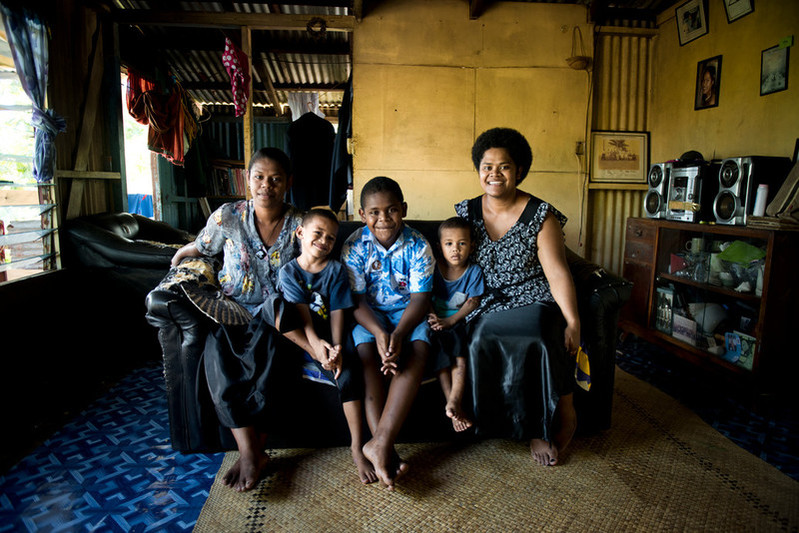
Helping Fijian communities to rebuild after Cyclone Winston
Cyclone Winston that devastated Fiji was the strongest to ever hit the South Pacific. IPPF’s humanitarian response there is part of our SPRINT Initiative, funded by the Australian Government’s Department of Foreign Affairs and Trade. In 2016, the highest grade cyclone to ever hit the South Pacific devastated Fiji, affecting 40% of the population. IPPF was among the first on the ground providing critical life-saving services: sexual and reproductive health provisions, which are often neglected when disaster strikes. In the wake of a crisis, sexual violence often escalates, leaving women and young people vulnerable to STIs and unwanted pregnancy. It is estimated that approximately 20% of women are pregnant at any given time during an humanitarian crisis, and with the help of our local Member Associations on the ground, we prioritize services to women and young girls, especially those who are pregnant and lactating, as well as new mothers. Xerxes Arcenal was part of the team which traveled to Viti Levu, the remote Fijian villages affected by the cyclone, to deliver much-needed medical attention and supplies. During their travels, he saw all the health facilities down and the schools down. "The young people will have nothing to do. This is a special concern for NGOs, as it is a critical time in the lives of adolescents, and it is not ideal for them to be left idle for a long time." Our local IPPF Member Association, the Reproductive and Family Health Association of Fiji, was instrumental in connecting with the local communities. This was important because cultural restrictions make it hard to discuss issues of sex within Fijian communities, which is a barrier to delivering sexual health issues. Xexes also stresses that sexual and reproductive health should not be considered an optional extra when it comes to any NGO mounting a response to a humanitarian disaster. Girls continue to menstruate, women continue to give birth, couples continue to have sex in the confused and chaotic weeks and months after a natural disaster. There will be cases of sexual violence, particularly when situations are stressful or people are forced to live in makeshift shared shelters. Unprotected sex will result in unplanned pregnancies, and children born in chaotic circumstances may fall behind on their development markers. “If you talk to the government they will say, we don’t need to respond to reproductive health right now, it’s not life threatening. So you initially get resistance from partners, from government, and you have to work around that, constantly engage them in discussion, show them proof of what happens.” At the same time, he identified the main challenge as squaring the gap between expectation and reality: the expectations of funders that a successful humanitarian aid mission should be based on numbers to whom services were delivered to, rather than the reality on the ground, where there might not be mass numbers who need attention, but rather, difficult circumstances that need to be overcome in order to deliver aid. “As it is in every disaster, it will relate to funds. No matter the road conditions, if you have enough resources you will be able to overcome it. The geo-economic situation of Fiji and other countries in the Pacific makes prices, cost of services and commodities very high. Add disaster to that, it will be ten times normal,” say Xerxes. “As it was, we would need our own vehicles [to effeciently deliver aid]. In Rakiraki we would love to serve one of the villages but you need a chopper to be able to reach the area. So these things are very challenging.” For Tarai Nakolinivalu, IPPF's Humanitarian response leader and former midwife, the Cyclone Winston response provided invaluable learning on how best to deal with the aftermath of natural disasters in Fiji. Tarai was part of the IPPF team that was involved in distributing aid to affected communities “Some of the roads were washed away, even bridges, so it was hard to drive,” says Tarai. The team travelled to villages to find sometimes great damage: trees uprooted, houses destroyed, sometimes more than 100 people living together in the community hall. One of the biggest challenges is that Given the strained circumstances, the team sometimes had to forego some Fijian customs, like the traditional kava ceremony which is undertaken by the village to show outsiders they are welcome. “The learning is to always be prepared because we never know. Because of climate change, natural disasters are here to stay now. We can’t be complacent here in Fiji.” Stories Read more stories about our work in Fiji after the Cyclone Winston
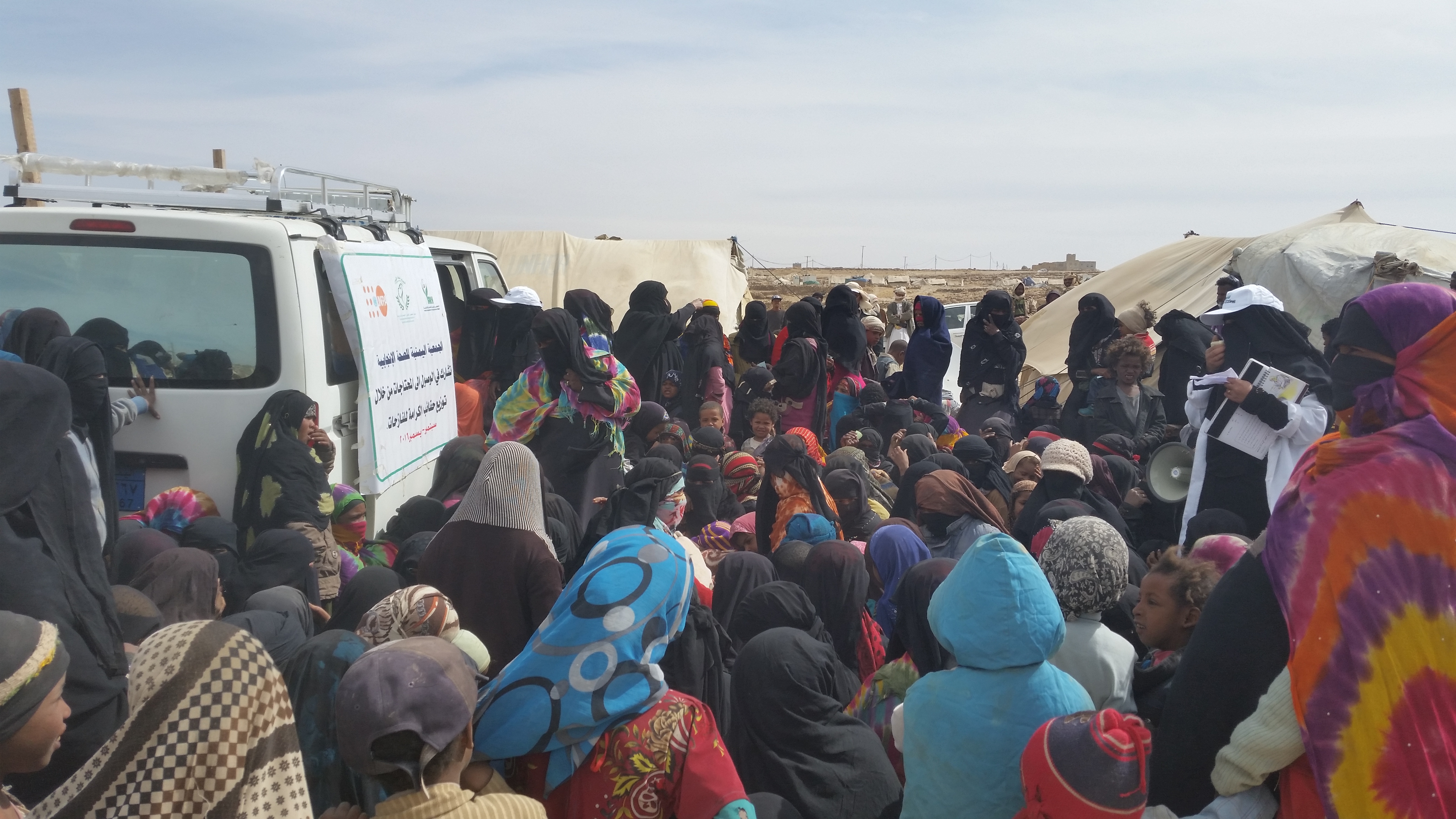
Humanitarian crises are not temporary, nor are sexual and reproductive health needs
Women and girls are disproportionately affected in humanitarian crises and face multiple sexual and reproductive health challenges in these contexts. IPPF has been providing much needed support to vulnerable communities through our global federation of member associations, who provide contextualised, timely and tailored interventions drawing on local partners' knowledge and expertise. However, recent shifts in the global political landscape are concerning and threaten to undermine IPPF's mission and impact on the ground. We live in a time when crises, whether brought on by human causes or natural disaster, have displaced more people than at any point since the Second World War. The needs of those driven from their homes are not transitory. Refugees now find themselves facing impermanent conditions for an average of 20 years. They must resort to living in temporary shelters or makeshift accommodation, and their refugee status often leaves them ineligible to access public healthcare and education. The UN reports there are more than 125 million people worldwide in need of humanitarian assistance. Of those, a quarter are women and girls between the ages of 15 and 49. And one in five of these women and girls is likely to be pregnant. A woman who has been forced to flee is particularly vulnerable. More than 60% of maternal deaths take place in humanitarian and fragile contexts, according to the UN Population Fund (UNFPA). At least half of these women’s lives could easily be saved. And yet women and girls affected by humanitarian crises face other risks too. A breakdown in civil order following disasters consistently increases the occurrence of sexual violence, exposure to sexually transmitted infections including HIV, and unintended pregnancies. After the 2015 cyclone in the Pacific Island nation of Vanuatu, a counselling centre recorded a 300% spike in gender-based violence referrals. Likewise, a study with Syrian refugee women displaced by conflict found that more than 50% experienced reproductive tract infections, almost a third had experienced gender-based violence, and the majority had not sought medical care. IPPF is at the forefront of delivering life-saving services. Our sexual and reproductive health program in crisis and post-crisis situations (SPRINT), established in 2007 and supported by the Australian Government, has ensured access to essential sexual and reproductive health services for women, men and children in times of crisis. Under the banner of our new IPPF Humanitarian division, the SPRINT initiative is now part of a global movement that seeks to provide all those affected by crises worldwide with dignity, protection and care. As a federation of 142 locally-owned but globally connected member associations, IPPF has a unique model for providing these vital humanitarian services. Our focus on valuing local solutions means our responses are rapid and sustainable. We see it as vital to be on the ground before, during, and after crises. Member associations work to mitigate against sexual and reproductive health (SRH) issues ahead of a crisis to reduce negative impacts, and remain afterward to assist communities to recover and rebuild their lives. When Cyclone Winston struck Fiji in February last year, IPPF’s local member association, the Reproductive and Family Health Association of Fiji (RFHAF), was already preparing to mobilise teams of volunteers and health staff. Initially, sexual and reproductive health was not prioritised at a national level, thus the first challenge was to convince the Government of Fiji and lead agencies of the critical importance of including sexual and reproductive health issues in the response. With support from IPPF and SPRINT personnel, RFHAF successfully advocated with the government to include reproductive health concerns into the post-cyclone needs assessment, and supported the Government in carrying this assessment out. Coordination and collaboration was critical as the damage was across an extensive area on several islands. Working in partnership with the Ministry of Health (MoH), UNFPA, Red Cross Society and local non-government agencies, RFHAF provided SRH care to remote areas identified as being worst hit by the cyclone. Colleagues from SPRINT and RFHAF split into three teams, moving into the field simultaneously to conduct 37 mobile medical missions to reach women and girls, with vulnerable pregnant women and new mothers prioritised. Comprehensive follow up beyond the initial response post-cyclone was a particular challenge for an organisation of just 11 staff. To address this, RFHAF leveraged their existing partnership with the MoH to facilitate training and handover of SRH service provision to district nurses and sub-divisional health centres, once these facilities were again operational. The response in Fiji utilised the Minimum Initial Service Package for Reproductive Health, which IPPF helped to pioneer. Commonly referred to as ‘the MISP’, the package is a series of priority life-saving interventions that IPPF seek to implement as soon as possible following a crisis.
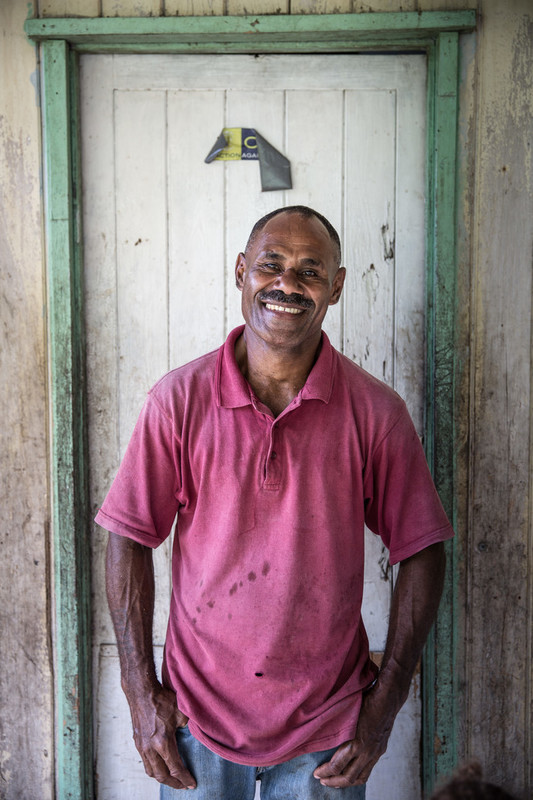
Leaders tackling taboos in Fiji
Cyclone Winston, which devastated Fiji, was the strongest to ever hit the South Pacific. IPPF’s humanitarian response there was carried out with our Member Association, the Reproductive & Family Health Association of Fiji, and is part of our SPRINT Initiative, funded by the Australian Government. Despite its flourishing international tourism industry, Fiji remains a deeply conservative and traditional society, bound by long-held rules on culture and conduct. In particular, any discussion about sex and sexuality is taboo: including talk of sex, condoms, pregnancy and sexually transmitted infections. Given Fiji’s relatively high rate of teen pregnancy (36 in 1000 in the 15-19 age group, according to UNFPA 2016 statistics), it is an issue of growing concern. It falls upon the village headman to provide guidance on how the issue is tackled: and when there is one who is progressive and not afraid to discuss taboo topics, it augers well for the sexual health of the entire community. Sevuama Sevutia is one such leader. The deputy headman of Naiserelegai village is a proud advocate of condom-use, telling the young people of the village that it is vital to wear them to prevent pregnancy. “My experiences, I share with the kids,” says Sevuama. “I tell the children, get to that stage of knowing what the sexual relationship is all about. Please look after yourself and if you have a problem, with the young boys or if someone is giving you the wrong advice, please tell people. It’s my job to tell them, to call their mother, their father.” “Nowadays, as the education level rises, we have to open up. But in the village, in the olden days, when people would see condoms they would say, 'no no, don’t talk about that'. But I am encouraging them to open up.” His children, too, are encouraged to be open. “I tell them, this is a condom,” he says, brandishing an imaginary condom. “Safe sex. If you want to have sex, use a condom. Use the condom! And protect yourself from the other things.” Sevuama, 53, a former marine engineer, spent decades in Suva before returning to his bayside home village of Naiserelegai. He was in the city at the time of the cyclone but managed to get back three or four days later when the roads had re-opened. He found his home damaged but intact and his five children safe, but much of the village destroyed and his wife still in shock. He received a small amount of money from the government to help fix his roof. Earlier this year, he, along with other men in the village, participated in IPPF information sessions on male sexual health and fertility, which he described as very helpful in complementing and reinforcing his existing knowledge. “We had a lot of questions, like mostly for the man, something might have happened to them during a difficult time. All this information helps the communities.” Stories Read more stories about our work in Fiji after the Cyclone Winston
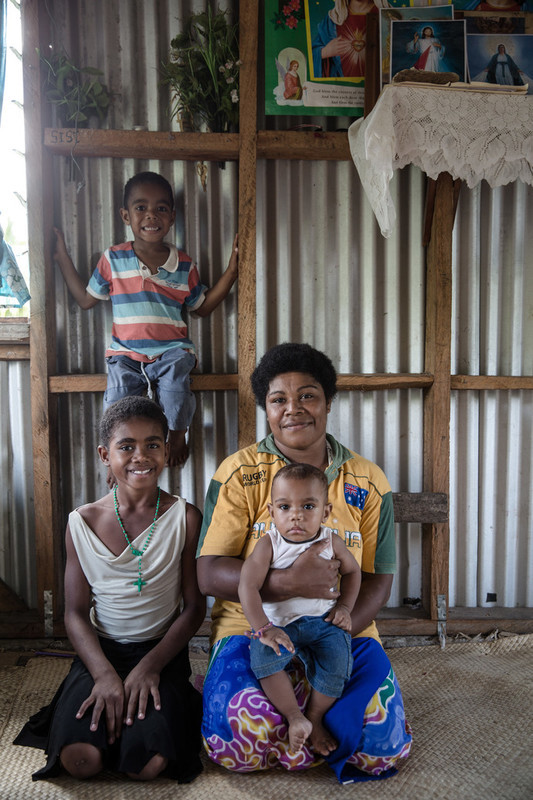
Dealing with the devastation
Cyclone Winston that devastated Fiji was the strongest to ever hit the South Pacific. IPPF’s humanitarian response there is part of our SPRINT Initiative, funded by the Australian Government’s Department of Foreign Affairs and Trade. My name is Elenoa Male and I live in the village of Navala. At the time of Cyclone Winston I was seven-months pregnant. It was already very hard trying to keep my other three children safe. I was alone with them because my husband went out hunting before the cyclone hit. Just before the time of the cyclone, my family was living between our traditional bure (thatched house) and a tin-roofed house. When the warnings first came, I decided to move my family from the bureto to the tin-roofed house. I realised that it would be hard to go to school where the evacuation centre was because I was pregnant. I told the kids we were sleeping under the bed. After we had dinner we prayed and we told God that now it is your will and we ask for your protection. So we lay down, and then my husband arrived and asked for the kids. I told him that we are all lying down under the bed. He said we really didn't know how strong the cyclone would be, but I told him to shut up and prepare for it. We all lay under the bed for hours. All I could hear was the strong winds. Once the winds died down, I came out but found our bure house was completely destroyed. I was sad because we need the bure for relaxation because of its coolness. I received a dignity kit from IPPF containing clothes for my children along with toothpaste and brushes, and this helped a lot in the weeks after Cyclone Winston. What I needed the most was for my kids to be fed properly and to wear good clothes. It really helped us a lot. Stories Read more stories about our work in Fiji after the Cyclone Winston
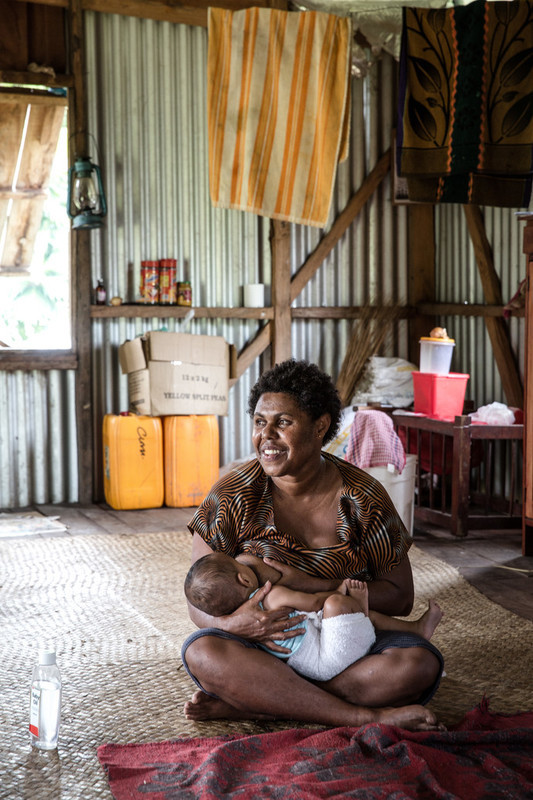
In the eye of the storm
Cyclone Winston, which devastated Fiji, was the strongest to ever hit the South Pacific. IPPF’s humanitarian response there was carried out with our Member Association, the Reproductive & Family Health Association of Fiji, and is part of our SPRINT Initiative, funded by the Australian Government. My name is Verenaisi Katerina. I have five children and we live in a remote village in the Ba Highlands. At the time the cyclone hit we were all living in a timber house and I was pregnant. I’ve lived in a bure (traditional timber house with a thatched grass roof) all my life, I’m so used to living in a bure, I’m not used to living in a tin-roofed house. We tried to be prepared when the cyclone came. But we had to all rush to the evacuation centre when the roof blew off our house. My whole family was scared, our house was flooded and our crops were all damaged. My daughter was covering her eyes and ears and crying for help. While I started preparing to move to the local school to take shelter, my husband went to get us some food. I was really, really afraid. I was so worried about my kids. I told my husband not to be late and to help me out with the kids going down to the school. In the end, I managed to get my children to the school on my own, and my husband joined us later. While my family took shelter, lots of other homes in Navala were destroyed. We were lucky: most of their possessions were blown away, but some managed to survive, and our home was damaged, but remained standing. When we came back the next day, my husband tried to start repairing the kitchen so that we could move back. We had a small stove that we were using, and we made a small kitchen so at least we could cook. My husband could only get us what was left over from the farm and that’s basically what we were living on. We had to eat a lot of flour products, a lot of rice, because our farm was badly damaged. I received a dignity kit from IPPF and found it extremely helpful, particularly in clothing my children and the baby. Some of it was worn on the very same day we received it. I later took part in a family planning session conducted by IPPF. I learned a lot from the workshop on that day. I told myself, this is it. I’m only going to have five kids. Having to go through that experience of Cyclone Winston, if I had more children, then it might have been more difficult, too late, for me to run up to that school for shelter. I have had a talk with my husband and we have decided that this one is my last. My fifth is my last. Stories Read more stories about our work in Fiji after the Cyclone Winston
Pagination
- Previous page
- Page 6
- Next page







